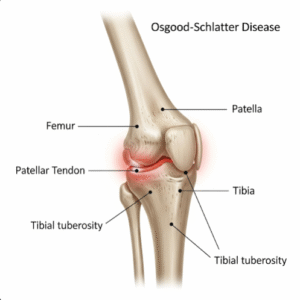Overview
Wernicke Encephalopathy is a serious and acute neurological disorder caused by a deficiency of thiamine (vitamin B1). It primarily affects the brain and is most commonly seen in individuals with chronic alcoholism, but can also occur in those with malnutrition, gastrointestinal disorders, or prolonged vomiting. If left untreated, Wernicke Encephalopathy can lead to irreversible brain damage or death, making early recognition and treatment critical.
What is Wernicke Encephalopathy?
Wernicke Encephalopathy is a neurological emergency that results from a severe lack of vitamin B1, which is essential for brain metabolism. It is characterized by a classic triad of symptoms: confusion, ataxia (loss of coordination), and ophthalmoplegia (eye movement abnormalities). The condition affects regions of the brain such as the thalamus, hypothalamus, and brainstem. If not treated immediately, it can progress to Korsakoff syndrome, a chronic and often permanent memory disorder.
Symptoms
The hallmark symptoms of Wernicke Encephalopathy include:
- Mental confusion or disorientation
- Ataxia (unsteady gait or difficulty walking)
- Ophthalmoplegia, which includes:
- Nystagmus (involuntary eye movement)
- Double vision (diplopia)
- Drooping eyelids (ptosis)
- Drowsiness or lethargy
- Memory disturbances (if progressing to Wernicke-Korsakoff syndrome)
- In severe cases: coma or death
Causes
Wernicke Encephalopathy is caused by thiamine (vitamin B1) deficiency, which disrupts glucose metabolism in the brain, leading to cell damage. Common causes include:
- Chronic alcohol abuse – impairs thiamine absorption and utilization
- Malnutrition or starvation
- Prolonged vomiting (e.g., hyperemesis gravidarum)
- Gastrointestinal surgery (e.g., bariatric surgery)
- Cancer or chemotherapy
- AIDS or other chronic illnesses affecting nutrient absorption
Risk Factors
Individuals with the following risk factors are at increased risk for Wernicke Encephalopathy:
- Alcohol use disorder
- Eating disorders, especially anorexia nervosa
- Persistent vomiting during pregnancy
- Gastrointestinal diseases (e.g., Crohn’s disease, chronic diarrhea)
- Dialysis patients
- Post-bariatric surgery patients without proper supplementation
- Low socioeconomic status leading to poor nutrition
Complications
Without timely treatment, Wernicke Encephalopathy can lead to severe complications:
- Progression to Korsakoff syndrome with permanent memory loss
- Brain damage, especially in the thalamus and mammillary bodies
- Loss of coordination and motor skills
- Vision loss due to nerve damage
- Seizures or coma
- Death, especially if untreated for more than a few days
Prevention
Preventing Wernicke Encephalopathy involves maintaining healthy thiamine levels and managing at-risk conditions:
- Thiamine supplementation in high-risk individuals (e.g., chronic alcohol users, post-surgery patients)
- Balanced nutrition with vitamin-rich foods
- Prompt treatment of vomiting or malabsorption conditions
- Routine screening for thiamine deficiency in hospitalized or malnourished patients
- IV thiamine administration before glucose infusion in alcoholics or malnourished individuals to avoid triggering encephalopathy
Treatment Options in Korea
South Korea provides high-quality emergency and neurology care, making it well-equipped to manage Wernicke Encephalopathy. Treatment includes:
- Immediate intravenous thiamine therapy – typically 100–500 mg daily until symptoms improve
- Glucose administration only after thiamine replacement to prevent worsening brain damage
- Electrolyte and fluid management in dehydrated or malnourished patients
- Neurologic monitoring and supportive care in specialized stroke or neurology units
- Rehabilitation services for motor and cognitive recovery
- Psychiatric evaluation and addiction treatment in cases related to alcohol use disorder
- Services are available in top Korean hospitals such as Seoul National University Hospital, Yonsei Severance Hospital, and Asan Medical Center, with specialized teams for neurocritical care and nutrition
Early intervention in Korea often leads to significant symptom reversal, especially if treatment is started before permanent brain damage occurs.













